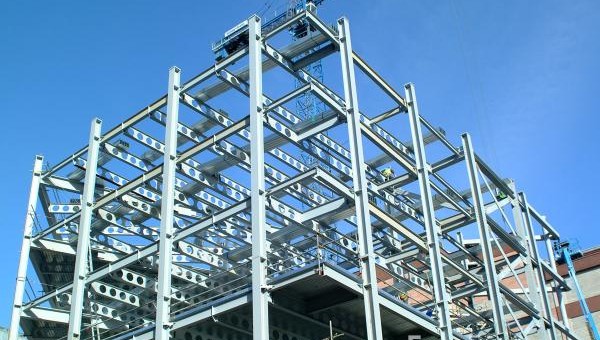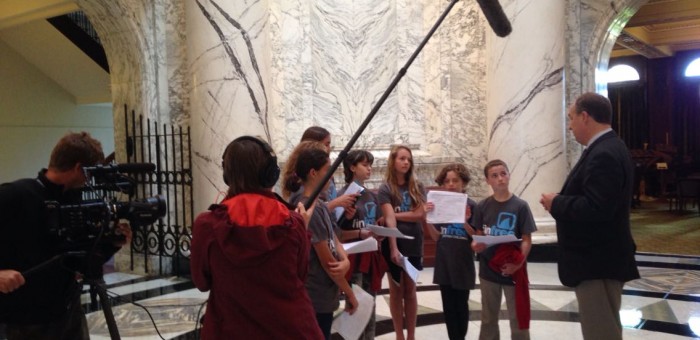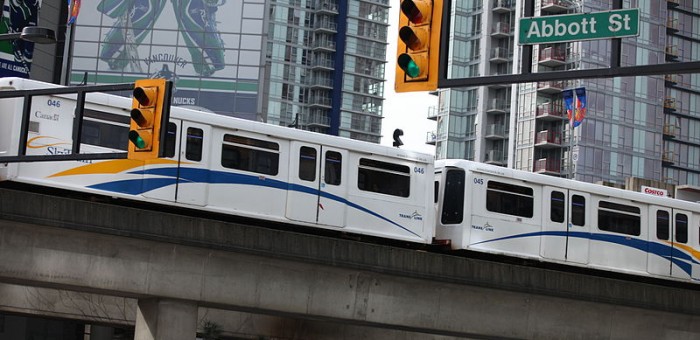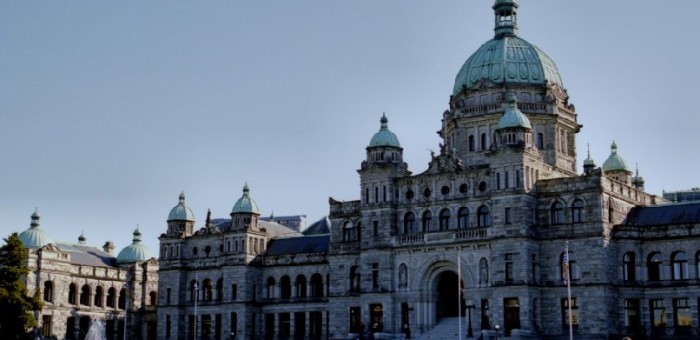Community Blog
BILL 3 – 2015 Building Act
On Thursday I rose to speak at second reading in support of Bill 3 -2015 Building Act. This is a bill that has been in the works for quite some time. As Minister Richard Coleman (Liberal – Fort Langley-Aldergrove) and Mike Farnworth (NDP – Port Coquitlam), two of the longest serving MLAs in the legislature, noted, the contents within the bill have been discussed and debated since the 1990s.
This bill has three main purposes:
- To streamline building requirements and ensure that they are the same throughout BC by establishing the province as the sole authority to create building requirements;
- To establish mandatory qualifications for local building officials in order to improve the interpretation, application and enforcement of the BC Building Code;
- To expand the province’s ability to review innovative building proposals.
Below is the text of my contribution to the debate.
My contribution to the debate at second reading
I must say, I do agree with the member for Nanaimo about the importance of climate and actually having that reflected in building codes. There have been steps made in the province of British Columbia, without any doubt, in that area. I assume and hope that there will be in the future.
The minister points out that the building code has been greening for the past seven years. I agree that there have been advances in that area. My concern, of course, is whether or not this bill will actually limit the innovation that has occurred and will continue to occur at the municipal level.
There’s a lot of good in this bill. I’ve been in contact with municipalities in the area that I serve, and they’re generally supportive of this bill. There’s strength within the streamlining of the building requirements across the province, particularly in a region like the capital regional district, with our multitude of municipalities and subsequent building codes. There does need to be standardization, and that has certainly been conveyed to me.
The intent, of course, is to reduce costs and improve efficiency, productivity and innovation in the construction sector. It’s hard to argue against attempts to reduce bureaucracy, red tape and costs in the construction sector. Of course, builders and construction associations have been lobbying for a streamlined Building Act for many, many years. As a stakeholder in the building business…. Of course, listening to an important stakeholder is of great importance.
Some of the local governments that we’ve looked into, particularly the ones that I represent, have expressed concerns not so much about what they’ve read in the bill, but the devil is within the details, in some sense. They’re not sure to what extent, at this stage, it will actually affect them or affect their ability to take local concerns into their building practices.
There are some concerns about streamlining. But generally, streamlining the building requirements, especially qualifications for building officials, would certainly help reduce confusion and improve the efficiency for builders.
Some of the concerns and questions that have been expressed to me lie in these finer details. In particular, there have been questions with respect to whether or not this bill actually provides a minimum standard or a maximum standard in some cases, whether it will limit innovation or allow for innovation. Again, this is where the devil is in the details. We’ll hear more about that as we go into committee stage.
One specific and very local example that was brought to my attention — and I think this is shared not only in the region of Oak Bay but across British Columbia — was the issue with respect to local requirements for fire regulations, fire sprinkler regulations. There are areas that are not well served by access for fire trucks, access for fire reduction. These areas do have and are required within local areas to have various sprinkler regulations. We only have to look at what happened on Mount Washington just this past week for some of the ramifications of perhaps not having more aggressive fire regulations in a community that is not well served, that does not have good access to fire services.
There’s also some question and concern about the extent to which this bill will retroactively remove some of the unique bylaws within the municipalities. I look forward to exploring that further. Again, it’s important — as the member for Nanaimo, the member for Port Coquitlam and others have expressed — to actually ensure this bill facilitates innovation rather than limits innovation. I’m sure, again, in committee stage we’ll see more of that.
Finally, the big question municipalities are asking is: who’s going to pay the cost? Is the government going to be repaid? Or is this, in some sense, going to be downloading of costs onto municipalities? Or will it be alleviating municipalities?
There is a very real concern out there that while builders will be saving money, the question is: what about local governments? Will they be picking up the bills, or will they actually be reducing their costs as well?
The rationale for this, of course, is that there are far too many pressing issues, as we try to deal with our infrastructure debt in municipalities across British Columbia that has grown over decades of neglect and is now having to be dealt with through year-after-year increases in municipal housing taxes, property taxes. There is simply no more room for growth in these areas to cover downloading of costs onto municipalities.
Once again, overall, I’m very pleased to support this bill at this stage, and I will look forward to seeing more information in the details as we move to committee stage.
Banning the sale of shark fins: Response from the Minister
In November the Minister of Agriculture committed to meeting with me to discuss how British Columbia could end the sale, trade and distribution of shark fins in British Columbia. We subsequently met and at the meeting I promised to put together a package of information that he committed to pass along to Ministry staff for a thorough review.
Shortly after the meeting, I presented the Minister with a binder containing detailed and comprehensive information outlining the rationale for implementing legislation to ban the sale, trade and distribution of shark fins.
Yesterday, I received the Minister’s response that I reproduce below.
I am disappointed with the response. The Minister did not respond to my specific question as to whether the government would consider introducing legislation to ban the sale, trade and distribution of shark fins in British Columbia. In the legal opinion I tabled in the Legislature and provided to the Minister, this is an area that falls within provincial jurisdiction. Instead the Minister deferred to federal jurisdiction concerning what can be imported into Canada and what can be harvested in our coastal waters.
Sadly, this response is not what I was hoping for.
Vancouver’s Transit Referendum — A synopsis
In the coming weeks, hundreds of thousands of ballots will be mailed out across Metro Vancouver asking residents a simple question:
“Do you support a new 0.5% Metro Vancouver Congestion Improvement Tax, to be dedicated to the Mayors’ Transportation and Transit Plan? Yes or No.“
If I lived in Vancouver, I would vote ‘Yes’. I would do so reluctantly. I would do so begrudgingly. And I would do so frustratedly, knowing that my provincial government had abdicated its leadership responsibility. Yet I would hope with all sincerity for a ‘Yes’ victory.
Vancouver is Canada’s most congested city and the third most congested city in North America, behind Los Angeles and Mexico City. As noted in a recent story by Ian Bailey in the Globe and Mail , “the average Vancouver driver experiences 87 hours of delay time a year based on a 30-minute daily commute.” With a population of more than 2.5 million and growing, it is without doubt that Metro Vancouver needs to make substantial investments in improving its public transportation.
The Problem with the Referendum
But let’s be very clear. This referendum is a waste of taxpayers’ money and demonstrates an appalling lack of leadership by the Liberal Government. The province is abdicating its responsibility to govern and the level of inconsistency being displayed is truly mind boggling. This same government has no problem announcing high-profile ribbon-cutting opportunities like replacing the Massey Tunnel with a bridge or adding a second bridge across Okanagan Lake without even a hint of a referendum. So why are we having one now?
That this government would hamstring Metro Vancouver Mayors with a referendum on new funding for transit infrastructure—a policy that both the government and the official opposition support—is unconscionable.
In my opinion we are left with two fundamental and unanswered questions:
- Why are we having a referendum on a policy when both the Government and Official Opposition, as well as business groups and other stakeholders, all agree that new funding is required to address congestion in the Lower Mainland?
- If we go through with a referendum and it gets voted down, what is the Plan B for the BC Liberals to address the transportation issues facing our largest population centres?
In the Spring of 2014, when the government introduced Bill 23 — South Coast British Columbia Transportation Authority Funding Referenda Act, the BC NDP spoke passionately against the bill. They argued, like I do above, that the government should show leadership and empower the Mayors Council to move forward with their transportation plans. They also pointed out that there were no details about any back up plan in case the referendum failed.
More recently the Premier has suggested that the Mayor’s could use Property Tax hikes to fund transit improvements if the referendum failed. In my opinion, this is the greatest abdication of responsibility we have seen so far. To reject Mayors’ initial strategy to raise funds, to then force a referendum on them that the Mayors didn’t want, and then to suggest that it is the Mayors’ responsibility to find the funding if the referendum fails, is indicative of a provincial government that is lacking leadership and doing all it can to avoid taking responsibility.
An Alternative Approach
So what do I think we should be doing?
During the election I campaigned on increasing the carbon levy by $5 per year until it hits $50/tonne, at which point we could assess where we are at. Currently, the carbon levy is revenue neutral; all of the revenue collected is subsequently returned to the economy through personal income tax and small business tax credits. But it doesn’t have to be that way going forward. For example, Quebec used their carbon levy revenue to improve public infrastructure.
During the election campaign I argued that Municipalities across British Columbia are facing an infrastructure deficit. Our public infrastructure (roads, sewers, bridges etc) was built last century. It is now old and crumbling and increasingly strained as our population grows.
Property tax increases are becoming unbearable for many, particularly seniors on fixed-income. Deferring property tax payments into the future doesn’t deal with the problem today. So I argued that during the next phase of the carbon levy increase (the next four years) all monies could be returned to municipalities to support them to deal with their infrastructure deficits, including public transportation.
By steadily increasing emissions pricing, we send a signal to the market that incentivises innovation and the transition to a low carbon economy. The funding transferred to municipalities across the province provides them with resources to deal with their aging infrastructure and growing transportation issues. By investing in the replacement of aging infrastructure in communities throughout the province we stimulate local economies and create jobs.
And importantly, by moving to this polluter-pays model of revenue generation for municipalities, we reduce the burden on regressive property taxes. Done right, this model could lead to municipalities actually reducing property taxes, thereby benefitting homeowners, fixed-income seniors, landlords and their tenants.
What better time to do this than now, with the price of oil hovering at $50/barrel. Most businesses would have already budgeted for a much higher price for oil. And the beauty of this approach is that as revenues from emissions pricing go down, direct revenues from public transport go up as more people move from single passenger vehicles to the skytrain.
While I recognize it may be too late to cancel the referendum, it’s time that we start having a more open and honest discussion about our aging infrastructure, the requirements for public transport and the means of generating revenue to pay for them.
23rd Vancouver Island Youth Parliament March 20 – March 22, 2015
Vancouver Island Youth aged 14 to 18 are invited to apply to attend the 23rd Vancouver Island Youth Parliament (VIYP), sponsored by the British Columbia Youth Parliament. This year, VIYP will be hosted by Gulf Islands Secondary School on beautiful Salt Spring Island.
The VIYP gives youth in our community an opportunity to learn about parliamentary procedures, debate Private Members Resolutions and build friendships by connecting with other youth who are passionate about our democracy and the critical issues that we face in society. In addition, VIYP intends to further its presence in the community by becoming more involved in service projects throughout the region.
VIYP is a non-profit, non-partisan youth organization that recognizes every young person’s potential to lead and serve in their community. VIYP’s aim is to provide a forum in which youth can develop skills in leadership, public speaking and the parliamentary process. These skills can then be put into practice through service to youth and the community. VIYP recognizes the significant abilities of youth and provides a forum in which youth can have their voices heard on issues that matter.
Each year, youth are “elected” to become members of VIYP as representatives of their schools or community organizations. You can find out more about the opportunity and application process by visiting their website.
Applications must be received by March 6, 2015.
BC’s Seniors Advocate Town Hall in Oak Bay March 9
British Columbia’s Seniors Advocate Isobel MacKenzie is hosting a senior’s public town hall meeting in Oak Bay on March 9, 2015 from 1:00pm to 3:00pm. The purpose of the event is to engage seniors in a conversation about improving the lives of BC seniors. The Seniors Advocate wants to hear from seniors and their families who live in the Oak Bay, Saanich, Esquimalt and Greater Victoria areas about what is working and not working for seniors in our communities.
The event will be co-hosted by the Oak Bay Seniors Activity Association and it will be held in the Garry Oak Room at Monterey Centre, located at 1442 Monterey Avenue in Oak Bay.
The Office of the Seniors Advocate lists upcoming events on their website and their office can also be contacted by phoning Toll-free 1-877-952-3181 (or 250-952-3181 in Victoria) if you have questions or comments.
Further details are available in the town hall event poster.








